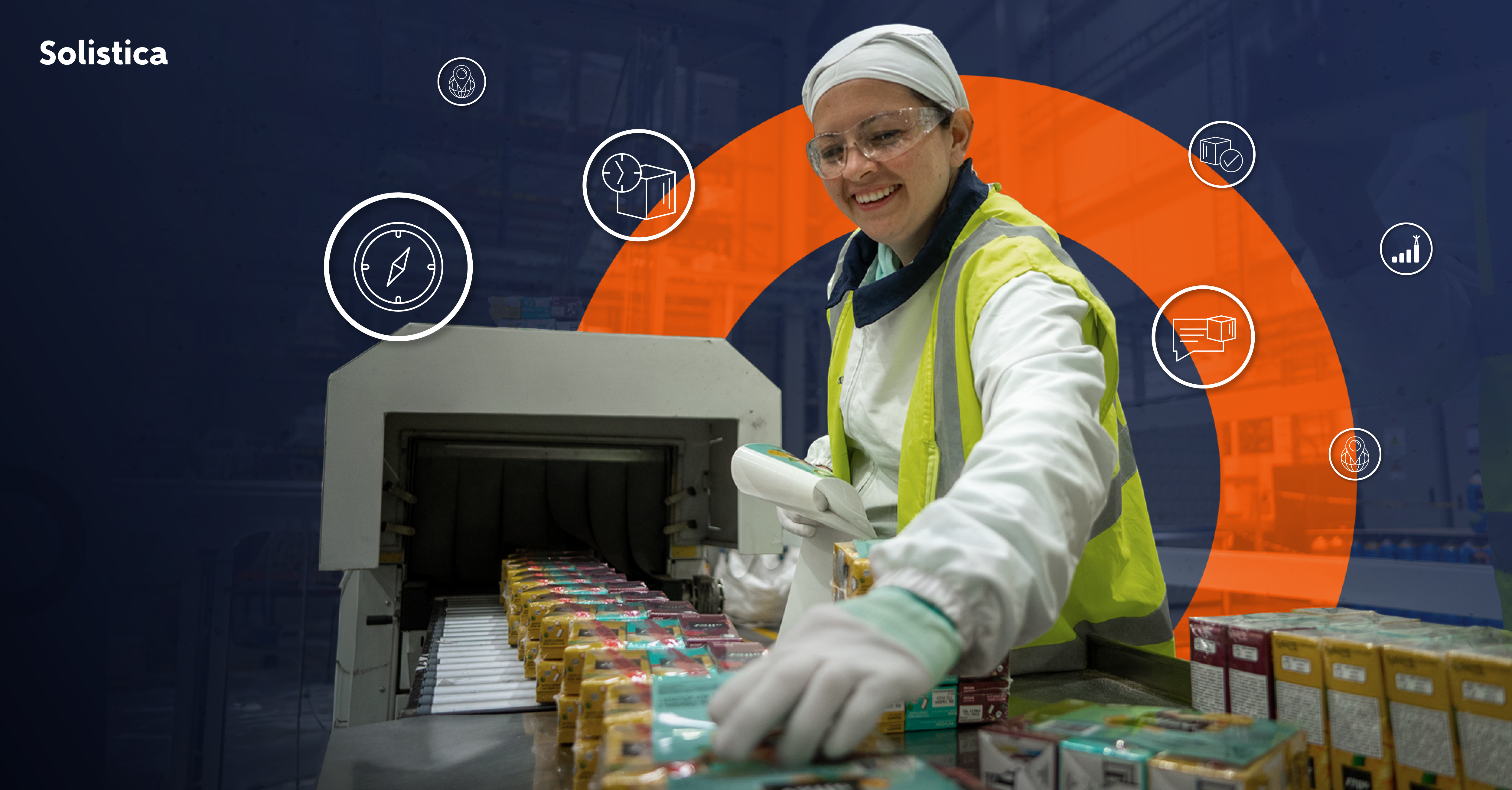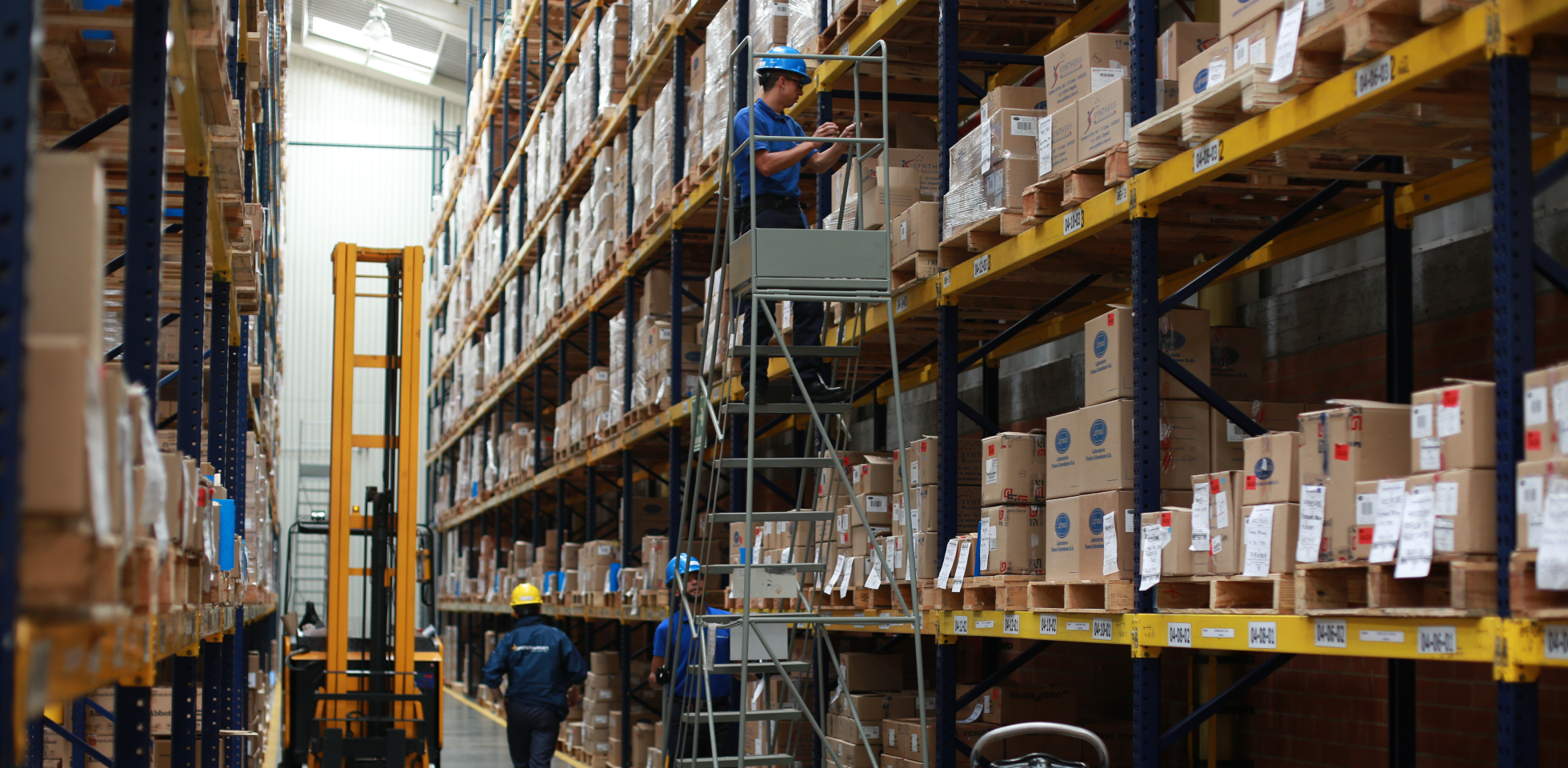For modern businesses, logistics operations have taken on an essential character and a capital importance, logistics has ceased to be a simple process of moving products to become a fundamental pillar of business success. More than an auxiliary function, modern logistics has transformed into a technological muscle that drives efficiency, competitiveness, and profitability in the global market.
Automation:
Automation, with its arsenal of cutting-edge technologies, has entered the logistics scene, redefining the way companies operate and compete. Automation is radically transforming logistics, providing unprecedented opportunities to optimize operations and achieve success.
Exploring Borders:
- Intelligent Inventory Management:
Automated systems monitor the flow of products in real time and use advanced algorithms to predict demand, adjust stock levels accurately and proactively, and optimize inventory turnover. In this way, a significant reduction in storage costs is created, greater efficiency in supply chain management, and better demand planning.
- Cutting-Edge Warehouses:
Robots and automated systems have become the new inhabitants of modern warehouses, transforming them into centers of unprecedented efficiency. Picking and order preparation are optimized through the use of collaborative robots, voice picking systems, and automated sorting technologies, minimizing errors, maximizing speed, and significantly reducing delivery times.
- Intelligent Transportation Planning:
Automation extends to transportation planning. Advanced algorithms and real-time data are combined to optimize delivery routes, vehicle assignment, and schedule programming, reducing fuel costs, carbon emissions, and improving punctuality in deliveries.
- Real-Time Visibility and Tracking:
The internet of things (IoT) has revolutionized traceability in the supply chain. Products become intelligent entities that transmit real-time information about their location, status, and condition. This allows companies to have total control over their products, identify potential problems early, and make proactive decisions to optimize logistics.
- Optimized Order Management:
Automated order management systems capture, process, and verify orders quickly and accurately; they also integrate with payment and shipping systems, streamlining the process and increasing customer satisfaction.
Intelligent Systems:
- Automated Warehouse Management Systems (WMS):
Technologies such as RFID, barcodes, and GPS optimize the flow of products in the warehouse, in turn allowing precise inventory control, real-time product location, and efficient operation management.
- Autonomous Vehicles and Robotics:
Autonomous trucks, drones, and collaborative robots integrate into the supply chain, revolutionizing transportation and last-mile delivery. Autonomous vehicles optimize delivery routes, while drones and robots handle delivery in hard-to-reach areas or with traffic restrictions, increasing efficiency, safety, and speed in delivery.
- Automated Transportation Management Systems (TMS):
These systems optimize the assignment of routes, fleet management, and load planning, through this they integrate with navigation systems and tracking platforms, allowing comprehensive management of transportation in real time.
Challenges and Opportunities:
While automation offers a promising future, it also presents challenges that must be addressed with caution. Job loss, data security, the need for constant training, and cultural adaptation to change are some of the aspects that require attention from companies and governments.
Automated Processes for Exceptional Efficiency:
- Movement of Goods:
Automated conveyors, robots, and automated sorting systems optimize the transfer of products within the warehouse, increasing efficiency, safety, and order processing capacity.
- Optimized Storage:
Stacker cranes, miniload systems, and intelligent storage solutions maximize storage space, increasing capacity, speeding up the location and recovery of products, and optimizing inventory management.
- Automated Loading and Unloading of Trucks:
Robotic systems like ATLS and automated loading stations streamline the loading and unloading of trucks, reducing downtime, associated costs, and the need for labor.
- Automated Inspection of Entries:
Quality control systems with artificial vision technology, RFID, and barcode readers verify the dimensions, status, information, and quality of incoming products, minimizing errors, ensuring quality, and optimizing the receipt of goods.
- Order Preparation:
“Product to man” systems, collaborative robots, and intelligent software streamline order preparation, increasing accuracy, speed, and efficiency in order management.
- Intelligent Control and Management:
Warehouse management software (WMS), transportation management systems (TMS), and radio frequency terminals provide total inventory control, product traceability, and real-time operation optimization, allowing for precise and proactive decision-making.
- Automation:
Companies that adopt logistics automation will be better positioned to face the challenges of the future, increase efficiency, reduce costs, improve profitability, provide an exceptional customer experience, and remain competitive in the global market. The technological muscle of logistics is ready to propel companies towards a future of success and competitiveness.
Delving into Ideas:
- Social and Labor Impact:
Automation can raise concerns about job loss and the need for workforce retraining. It is essential that companies implement training and education programs so that workers can adapt to new technologies and acquire the necessary skills for the jobs of the future.
- Sustainability and Environment:
Automation can contribute to sustainability and environmental protection by optimizing transportation, reducing fuel consumption, carbon emissions, and the use of packaging materials.
- Investment in Technology:
The investment in logistics automation technology can be considerable, so it is important that companies conduct a thorough analysis of their needs and objectives before investing.
- Cybersecurity and Data Protection:
Automation involves the management of a large amount of sensitive data, so it is essential that companies implement robust security measures to protect information from potential cyber attacks.
- Ethics and Social Responsibility:
It’s important for companies to implement automation in an ethical and responsible manner, taking into account the social and labor impact of technology.
Finally the automation of logistics processes has revolutionized the way companies manage their operations significantly. Cutting-edge automated handling equipment, such as conveyors and stacker cranes, allow for increased productivity and streamlined storage tasks, which translates into optimal efficiency in the supply chain. Although automation implies challenges and concerns, its benefits are indisputable in an increasingly competitive and demanding business world. Companies that bet on logistics automation will be better prepared to face the challenges of the future and stay at the forefront in a constantly evolving environment proactively.






